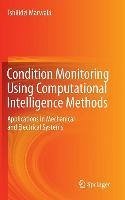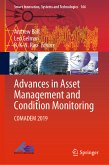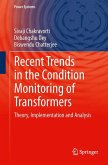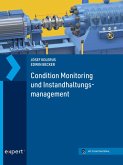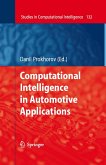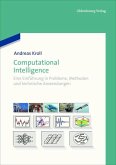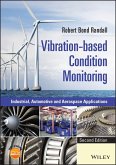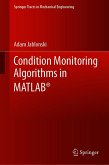Condition monitoring uses the observed operating characteristics of a machine or structure to diagnose trends in the signal being monitored and to predict the need for maintenance before a breakdown occurs. This reduces the risk, inherent in a fixed maintenance schedule, of performing maintenance needlessly early or of having a machine fail before maintenance is due either of which can be expensive with the latter also posing a risk of serious accident especially in systems like aeroengines in which a catastrophic failure would put lives at risk. The technique also measures responses from the whole of the system under observation so it can detect the effects of faults which might be hidden deep within a system, hidden from traditional methods of inspection.
Condition Monitoring Using Computational Intelligence Methods promotes the various approaches gathered under the umbrella of computational intelligence to show how condition monitoring can be used to avoid equipment failures and lengthen its useful life, minimize downtime and reduce maintenance costs. The text introduces various signal-processing and pre-processing techniques, wavelets and principal component analysis, for example, together with their uses in condition monitoring and details the development of effective feature extraction techniques classified into frequency-, time-frequency- and time-domain analysis. Data generated by these techniques can then be used for condition classification employing tools such as:
· fuzzy systems;
· rough and neuro-rough sets;
· neural and Bayesian networks;
· hidden Markov and Gaussian mixture models; and
· support vector machines.
On-line learning methods such as Learn++ and ILUGA (incremental learning using genetic algorithms) are used to enable the classifiers to take on additional information and adjust to new condition classes by evolution rather than by complete retraining. Both the chosen methods have good incremental learning abilities with ILUGA, in particular, not suffering from catastrophic forgetting.
Researchers studying computational intelligence and its applications will find Condition Monitoring Using Computational Intelligence Methods to be an excellent source of examples. Graduate students studying condition monitoring and diagnosis will find this alternative approach to the problem of interest and practitioners involved in fault diagnosis will be able to use these methods for the benefit of their machines and of their companies.
Condition Monitoring Using Computational Intelligence Methods promotes the various approaches gathered under the umbrella of computational intelligence to show how condition monitoring can be used to avoid equipment failures and lengthen its useful life, minimize downtime and reduce maintenance costs. The text introduces various signal-processing and pre-processing techniques, wavelets and principal component analysis, for example, together with their uses in condition monitoring and details the development of effective feature extraction techniques classified into frequency-, time-frequency- and time-domain analysis. Data generated by these techniques can then be used for condition classification employing tools such as:
· fuzzy systems;
· rough and neuro-rough sets;
· neural and Bayesian networks;
· hidden Markov and Gaussian mixture models; and
· support vector machines.
On-line learning methods such as Learn++ and ILUGA (incremental learning using genetic algorithms) are used to enable the classifiers to take on additional information and adjust to new condition classes by evolution rather than by complete retraining. Both the chosen methods have good incremental learning abilities with ILUGA, in particular, not suffering from catastrophic forgetting.
Researchers studying computational intelligence and its applications will find Condition Monitoring Using Computational Intelligence Methods to be an excellent source of examples. Graduate students studying condition monitoring and diagnosis will find this alternative approach to the problem of interest and practitioners involved in fault diagnosis will be able to use these methods for the benefit of their machines and of their companies.
Dieser Download kann aus rechtlichen Gründen nur mit Rechnungsadresse in A, B, BG, CY, CZ, D, DK, EW, E, FIN, F, GR, HR, H, IRL, I, LT, L, LR, M, NL, PL, P, R, S, SLO, SK ausgeliefert werden.

